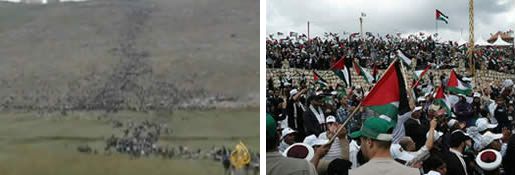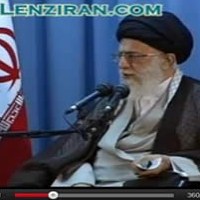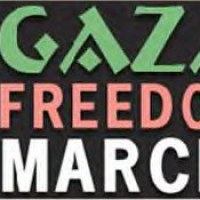![]()
Mon, Februari 20, 2012
This study was first published by The Meir Amit Intelligence and Terrorism Information Center: “The organizations participating in the campaign to delegitimize Israel plan a series of propaganda events on Land Day, March 30, 2012, to challenge Israel and attract media attention. Among the events planned are a potentially violent march to Israel’s borders from the neighboring countries and worldwide BDS activities.”[1]
Overview
The organizations in the Middle East and around the globe participating in the campaign to delegitimize Israel chose March 30, the day Israeli Arabs have marked Land Day since 1976, to hold a series of propaganda events.
A series of simultaneous marches are planned for March 30, 2012. Participants will leave from various locations in the Arab countries surrounding Israel and march toward Israel’s borders. The organizers named the march the World March to Jerusalem, and it will take place in Jordan, Lebanon, Syria and the Judea, Samaria and the Gaza Strip. For months, intensive preparations have been made in the the various countries and several meetings have been held. In Lebanon the preparations are led by Fatah operatives, with the participation of Palestinians living in the refugee camps with the slogan of “the right of return.”
In addition, the following events are planned for March 30:
1) A BDS “Global Day of Action” initiated by the BNC, an umbrella network of Palestinian NGOs based in Ramallah: The BDS campaign, which originated at the Durban Conference in 2001, promotes sanctions and boycotts to prevent foreign investments and cultural, academic and sports relations with Israel. Propaganda events are planned worldwide, including a demonstration which will be held in front of the Israeli embassy in London, attended by activists not participating in the marches.
2) Land Day, organized by Israeli Arabs to mark the violent demonstrations of March 30, 1976 in the region of the northern Israeli city of Carmiel to protest the expropriation of Arab lands: The date, a symbolic protest of Israeli Arabs, has been adopted by organizations and activists to promote anti-Israeli objectives in the delegitimization campaign. Last year (2011), Land Day was exploited to further the BDS campaign, and during March so-called “Israeli apartheid week” events were held in several Western countries (neither event attracted much public or media attention).
In preparation for the events, especially the marches, there has been much activity in the Middle East and throughout the world. The objective is to challenge Israel and raise awareness of the so-called “right” of Palestinians and Muslims to Jerusalem and the “right of return” of the Palestinian refugees, and to promote the campaign to vilify and boycott Israel. To that end delegitimization organizations and activists around the world joined forces with local Middle Eastern organizations, among them Hamas (whose activists are involved in preparations for the marches), the Muslim Brotherhood (which in our assessment is in charge of preparations in Jordanian) and Palestinian NGOs in Ramallah, most of them leftist and responsible for BDS activities around the globe (with the approval if not the encouragement of the Palestinian Authority, which considers them part of its anti-Israeli “popular resistance”).
While the various organizations represent the marches as non-violent, they have the potential for violence. One indication of that were the inflammatory remarks made Munir Maqdah, Fatah commander in Lebanon and in charge of the march in the Lebanese sector, who threatened to turn the events in Lebanon into the beginning of a new intifada, which would include an armed campaign. In addition, the theme of the march from Lebanon (“the march of return”) and a remark about the intention to repeat the violent Nakba Day march organized on May 15, 2011, indicate its potentially violent nature. (The May 15 march ended in casualties among the demonstrators who tried to implement the so-called “right of return” from Lebanon by breaching the border and entering Israel.)
Marches to the Israeli border from neighboring countries — the situation on the ground
Overview
The organizers of the marches plan to send large groups of participants to the Middle East from various countries as part of the so-called Global March to Jerusalem (GMJ). The groups are expected to join forces with the local activists preparing the marches. According to an open letter issued by the organizations, demonstrators will march to Israel’s borders with Egypt, Syria, Lebanon and Jordan. The organizations also plan to organize marches in Judea, Samaria and the Gaza Strip. They represent the marches as peaceful, but past experience (the invasion of Israeli territory from Syria and Lebanon) and present indications (references made in connection with the “return march from Lebanon”) show that the marches have the potential for violence.[2]
The objective of the marches, as defined by the official spokesman, a Hamas activist in Britain named Zaher al-Birawi, is to raise public awareness about Jerusalem. He said that the intention of the marches was to send Israel the message that it had to end the so-called “siege” [of the Gaza Strip] immediately and “liberate” “Palestine” and Jerusalem (Al-Quds TV, January 17, 2012). A theme emphasized by Fatah activist Munir Maqdah in Lebanon was the realization of the so-called “right of return” of the Palestinian refugees to Israel.
Hamas is involved in organizing the marches and making preparations for media coverage. Two of its prominent activists in Britain, Mahmoud Sawalha and Zaher al-Birawi, are involved in the preparations. Two Hamas heads have also been enlisted: Ismail Haniya, head of the de-facto Hamas administration in the Gaza Strip, gave a speech on December 14, 2011, on the occasion of the anniversary of the founding of Hamas. He called for the issue of Jerusalem to be placed at the top of the Islamic nation’s priorities and asked for volunteers to join the march to Israel on Land Day to restore the Palestinian cause [to center stage] by force and with vigor (Al-Aqsa TV and YouTube). Mahmoud al-Zahar joined him in calling on the Palestinian people “from within the occupied land” and the Arab-Muslim nation to join the marches.
The “march of return” from Lebanon
Preparations are being made in Lebanon to organize a mass march called “the march of return” to the Israel-Lebanon border. To that end, local committees were appointed in the Palestinian refugee camps in Lebanon to deal with organizing and supervising the march. The committee members belong to Fatah and other Palestinian organizations, and so-called “Islamic forces” (possibly Hezbollah) are also represented. Munir Maqdah, Fatah commander in Lebanon, is in charge of coordinating the preparations (Al-Markazia, February 11, 2012). Hezbollah has not been specifically mentioned by the march’s organizers, but its agreement and support are necessary because it is powerful and controls the area of south Lebanon.
Munir Maqdah used inflammatory rhetoric during interviews with the Lebanese media. On February 11, 2012, he told the Lebanese website Al-Markazia that “thousands of our people will go to the border with Palestine. Extensive preparations are being made to organize marches of the return on Land Day, March 30, 2012.” He added that they were “peace marches,” whose objective was to “emphasize the right of return.” He claimed that following the failure of the negotiations with Israel, the event would initiate a third intifada, whose first sparks would be lit on Land Day. Colonel Maher Shabaita, Fatah secretary in the Ain al-Hilweh refugee camp, also said that the World March to Jerusalem was intended to emphasize the importance of the “right of return” (PNN from Beirut, February 6, 2012).
Interviewed by PNN, Munir Maqdah (indirectly referring to the events of Nakba Day 2011) said that whoever killed a [Lebanese] citizen on the Israeli border would [himself] be killed. He said after the negotiations with Israel had stalled, the events planned for Land Day might signal the beginning of a third intifada, in which all options to “realize Palestinian rights” were open, including an armed struggle (PNN from Beirut, February 6, 2012).
On February 11, 2012, “Palestinian sources” told the Al-Markazia website that the march would be the second of its kind, having been preceded by the Nakba Day march in May 2011. Note: On May 15, 2011, the main event in Lebanon was held in Maroun al-Ras, near the israeli-Lebanese border under the aegis of Hezbollah and with the Lebanese army in attendance. Thousands of people participated, most of them Palestinians, who had been bussed in. Towards the end of the ceremony the participants began marching from Maroun al-Ras toward the Israeli border carrying signs calling for the return to Palestine. During the ensuing violent confrontations, which were reported by the media, between groups of rioters who approached the border fence and IDF soldiers, approximately ten people were killed and dozens more wounded.[3]

Left: A large group of rioters leaves Maroun al-Ras after the ceremony and heads for the Israeli border during the Nakba Day events (Al-Jazeera TV website, May 15, 2011); Right: The ceremony held at Maroun al-Ras before the participants marched to the border fence between Israel and Lebanon on May 15, 2011 (Photo from the Flicker website).
Meetings held around to globe to prepare for the marches to Israel’s borders
Overview
The organizations in the campaign to delegitimize Israel and anti-Israeli organizations in the Middle East and abroad have been holding meetings to prepare the marches to Israel’s borders. The meetings are held in various countries (such as Jordan and Lebanon), locally and internationally, by organizations, networks and activists, some of them affiliated with the delegitimization campaign. The intense nature and extent of the activity is exceptional, and recall the preparations made during the years preceding the Mavi Marmara flotilla in 2010 and the flotilla from Greece in 2011. The preparatory meetings are held under the aegis of a joint framework for planning and supervision, similar to that set up for the flotillas. (For example, the European preparatory committee for the Global March to Jerusalem was appointed at the meeting in Rome on January 14, 2012.)
At the preparatory meetings policy is set and the various organizations and activists participating in the events are coordinated. The meetings are also used to enlist participants, collect donations and promote propaganda for March 30. In our assessment, there are also contacts between the organizers and the various countries in which the marches are supposed to be held, without whose agreement it would be difficult for the organizers to operate. Meetings have already been held in Jordan, Egypt, Austria, Germany, India, Turkey, Italy, the United States and Britain (London), and others are planned.
The meeting in Beirut
Early in January 2012 a two-day meeting was held in Beirut. Participants came from many countries, one of whom was Feroze Mithiborwala, an anti-Israeli Indian activist who was prominent in organizing the march from Asia. Other participants were Zaher Birawi and Mahmoud Sawalha, Britain-based Hamas activists, who are active in organizing the GJM marches and pre-march propaganda. Another participant was Paul Larudee, an American of Iranian origin who lives on the West coast and engages in various anti-Israeli activities in the territories (under the aegis of the International Solidarity Movement) and in the flotilla campaign.
The organizational structure of the march and pre-march propaganda were discussed at the meeting. Mustafa Barghouti, a leftist Palestinian activist operating out of Ramallah, one of the organizers of the march project and the BDS campaign, claimed that the mass popular resistance movement had become a “national Palestinian consensus” and could be used as the main Palestinian national strategy (Al-Quds TV, January 17, 2012).

Left: Mustafa Barghouti at the meeting in Beirut (WM2J website, January 24, 2012); Right: The pre-march meeting in Beirut (March Facebook page, January 22, 2012)
The marches’ organizers met with members of the Lebanese group who had participated in the Nakba Day and Naksa Day in 2011. The members of the group said they would participate in the World March to Jerusalem (March Facebook page, January 22, 2012). However, according to remarks made by a Fatah activist who is responsible for pre-march arrangements in Lebanon, the march will apparently focus on the theme of the “right of return” (as noted above).
Other preparatory meetings
On February 2-3 a meeting was held in Pakistan for the Asian convoy. Participants included anti-Israeli activists from several Asian countries. The Asian convoy is expected to leave India on March 9, 2012 and head for Jordan (possibly with the intention of joining the proposed march to the Jordanian border). It is expected to make scheduled stops in a number of countries, where meetings and press conferences will be held (WM2J website, February 5, 2012). The previous Asian convoy passed through Iran, where its members met with senior figures and received Iranian support, and its passage was exploited by the Iranian regime for anti-Israeli propaganda.[4]
On February 13 meeting was held by a number of organizations in Britain. Dr. Hafez al-Karmi, chairman of the Palestine Forum in Britain (the PFB, a radical Islamic organization),[5] said the meeting was in preparation for a broad European conference which would take place in London on February 21, 2012. As the convoy leaves, its organizers plan a mass demonstration in front of the Israeli embassy in London, where activists who could not go to the Middle East to participate in the march will demonstrate (WM2J website, February 11, 2012).
BDS global day of action, March 30 2012
The BNC, the Ramallah-based Palestinian planning committee for the BDS[6] campaign, issued a call on its website for people to join the so-called global day of action on March 30, 2012. On February 10 the BDS issued a call for activists around the world to carry out activities on March 30 to promote the BDS campaign in a show of solidarity with the Palestinians (BDS website).
The BNC is a Palestinian umbrella network established in 2007 in Ramallah to promote the global boycott (BDS) of Israel. It is composed of 26 Palestinians NGOs, most of them affiliated with the Palestinian left. The BNC maintains contact with BDS activists around the globe and initiates activities to promote the boycott. BDS activity is based on a decision made by a forum of NGOs at the first Durban conference (2001) and draws inspiration from the international boycott which was imposed on South Africa and led to the collapse of the apartheid regime. The Palestinian Authority permits the BNC to conduct its extensive activities from Ramallah as part of what it considers its “popular resistance” against Israel.
On February 10, 2012, the BNC issued a call through its website to activists around the globe to carry out anti-Israeli activities on March 30, 2012, with the emphasis on exposing the BDS campaign to new audiences. The activities include initiating new campaigns to boycott Israel and continuing the old ones, exposing new audiences to BDS initiatives, promoting public relations for the pro-Palestinian meeting which is supposed to be held in Brazil[7] in November 2012, a call for various governments to impose sanctions on Israel, the imposition of a military embargo on Israel and the cancellation of trade and other agreements.
The plan to exploit the symbolic event of Land Day to promote the BDS campaign is not the first of its kind. Last year as well the BNC issued a call for activists around the world to hold anti-Israeli propaganda activities (especially in Western countries) to show solidarity with Land Day. In reality, the activities did not achieve the impact the organizers had hoped for. One of the reasons was the upheavals in the Arab world, which attracted most of the world media’s attention. In our assessment, based on that experience, this year BDS activity has been incorporated into the March 30 marches to the borders of Israel in an attempt to focus the efforts simultaneously on one date to achieve a greater propaganda effect.
![]()
Notes:
[1] Supplement to the January 23, 2012 bulletin, “Anti-Israel Delegitimization Campaigns Continue Unabated” by the ITIC.
[2] Salah al-Bardawil, head of Hamas’ information department, referred to the nature of the so-called “popular resistance” (in relation to the dispute between the Palestinian Authority and Hamas). He said that the popular resistance had several levels which “depend on the degree of public rage,” and might become violent and include the use of knives and light weapons. He claimed that an intifada was also a kind of “popular resistance” (Al-Sharq, January 15, 2012). In the past, “popular resistance” events have occasionally turned into violent confrontations.
[3] For further information see the May 19, 2011 bulletin “Nakba Day: “Right of Return” is Central to Palestinian’ Strategy to Liberate “Palestine”” by the ITIC.
[4] For further information see the December 18, 2010 bulletin “The Asian convoy’s activists reached Iran, where they were officially welcomed by Ahmadinejad and others” (by ITIC) and the December 14, 2010 ISNA report.
[5] The PFB operates in Britain and has a radical Islamic ideology and agenda similar to those of the Muslim Brotherhood. Zaher al-Birawi, a Hamas activist in Britain who participates in organizing marches, was PFB chairman from 2001 to 2003, and today is in charge of its propaganda. The PFB co-organized a meeting in 2010 whose them was “Al-Aqsa mosque is in danger” (for further information see theHarry’s Place website, March 26, 2010).
[6] Boycott, Divestment, Sanctions
[7] Whose theme will be “World Social Forum — Free Palestine”



 RSS
RSS











Latest Comments
Hello Mike, Thank you for your positive feedback to the article. I felt there wasn’t too much critical analysis of ...
Thanks for this considered and well constructed article. A follow up article on the manner in which the editorial contro...
THE CLUELESSNESS OF CLAIMING THAT OBAMA'S MIDDLE EAST POLICIES WERE A FAILURE CANNOT BE FURTHER FROM THE TRUTH, WHAT THE...
As long as Obama is the president of the usa do not trust the us government......
Thank you for an good read....